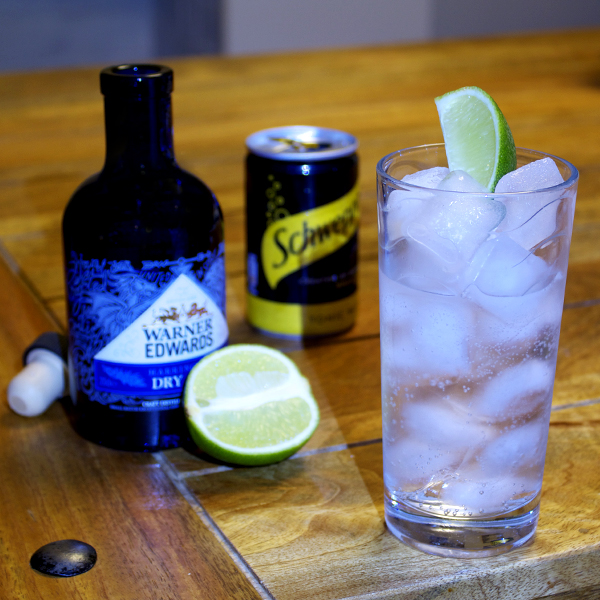For this Cocktail Corner recipe we’re looking at one of the simplest, most popular boozes going: the G&T. But is it a cocktail, we hear you all scream in unison. OF COURSE IT JOLLY WELL IS. And if you don’t believe us, check out the dictionary definition of ‘cocktail’ for yourself.
Now, let’s all calm down with the perfect gin and tonic…
Gin and Tonic
Brief History
Much like with the history of the IPA, we’re heading over to India on a big boat in the mid 19th century. But rather than looking for a beer that will survive the long journey and refresh the sweaty workers on landing, this time we’re trying to stave off illness. To do this we’ve been guzzling tonic water, packed to the rafters with quinine, a substance that not only sends some people a little bit bonkers, but also acts as a cure for hot-headed fevers and malaria.
But back in those days, tonic tasted aggressively bitter. So folk decided to improve its flavour with the addition gin, giving it a bonus boozy pick-me-up, while cooling and refreshing the drink with ice and citrus fruit, the latter also helping with the battle against scurvy.

How to make an Gin and Tonic
Difficulty level: Easy
What you’ll need:
50ml gin
50ml tonic
A wedge of lemon or lime
Ice
Although we’re sticklers for rules, a G&T is one of the more flexible drinks going with the majority of decisions to be made according to taste.
What gin is best? The G&T is a perfect showcase for great gin so choose yourself a good one. In this recipe we’re using Warner Edwards’ Harrington Dry Gin. It’s a beautiful hand crafted spirit with a very clean, floral bouquet and gently warming bitter spice flavours.
How much tonic? As a staring point we reckon an even mix of gin and tonic is ideal, but you can dilute further if you prefer your G&T longer and less boozy, particularly if you’ve found an extra strong gin. Warner Edwards’ is 44%, which is more than most, but we want those complex flavours to shine through so will be sticking with our even mix.
Lemon or lime? Some people will be adamant that one fruit is a better garnish than the other but we would advocate assessing which works better with your gin. In this instance it’s a narrow victory for lime.
What type of glass? A big wine glass will give off the best aroma; a tall glass will look more authentic. Go with your instinct but, please, no jam jars.
Instructions:
1 Fill your glass with ice.
2 Pour gin into glass.
3 Pour tonic into glass.
4 Drop in slice of lime.
5 Guzzle.
Variations
A gin and tonic has to contain gin and tonic, so there aren’t too many variations you can try. However, we will allow you to use a flavoured gin if you fancy something different – such as our gin’s cheeky sibling, Warner Edwards Rhubarb Gin.
Home grown customisation
If you’re a bit of a booze maker then you can flavour your own gin with something home grown (try dropping a few nuggets of rhubarb into a bottle of gin and letting them infuse for 24 hours). Other than that you can accentuate your gin’s botanical flavours with an additional home grown, or foraged, ingredient – a spring or rosemary, a leaf of bay or a scattering of elderflowers, for example.









Love your show at Yeovil yesterday but I missed the beginning. Any chance of posting the mint gin receipe? Just tried it at home but it was only a guess at the making process
Hi John
Thanks for attending our demo and pleased you enjoyed the cocktails.
We’ve just published the recipes on the site and here’s the link:
http://twothirstygardeners.co.uk/2017/07/enjoy-two-easy-home-grown-gin-mint-rhubarb-cocktails/
Let us know how they turn out